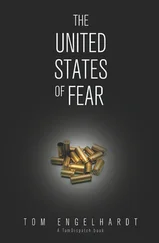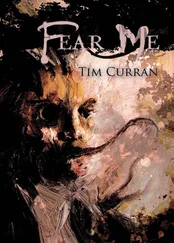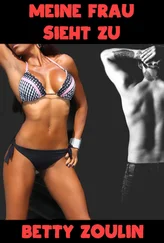The one next to Tull, still holding out the flask, returned Tull’s stare and said, “Unfriendly. Did your husband turn you out for the night?”
Tull felt himself warming with a familiar pleasure. The speaker’s companion on the other side saw Tull smile, and he tugged at his friend’s arm and said, “Come on, let’s move.”
“Why?” said the one next to Tull. “He can move if he doesn’t like our company.”
With his left hand Tull grabbed the speaker’s hair from behind, twisted the man’s head, yanking it backward then pushing it down quickly between the man’s knees and leaning his weight on him. With his other hand Tull withdrew the knife from his jacket pocket and with a flick of the wrist opened it so that it locked into place.
“Here, what’s this?” someone said in the row behind.
“Mind the show,” Tull said to the voice. Tull looked across his captive at the man’s friend and raised his eyebrows.
“We’ll go,” the friend said. Onstage, the minstrels were singing about some pretty dark-skinned girl they all loved.
Tull tightened his grip on his neighbor’s hair and heard him say, “We’ll go.”
“You’re sure of that, right?” Tull said, leaning down.
“Yes,” the voice said.
“All right.” To the other, Tull said, “Go on out in the aisle. Don’t say anything.”
The friend moved to the aisle, and Tull, keeping his grip on his neighbor’s hair, turned him and shoved him; the man fell to the floor between the seats, recovered himself, and joined his friend in the aisle. They departed.
Tull settled himself again in his seat, but the encounter had put him in a foul humor. No one in the country would talk that way. They would know they were inviting trouble. In the city everything was a show. No consequences. He wondered what the people around him would have thought if they visited a real plantation, with real slave quarters, real dirt and blood. He would have liked to tie a few of them up and make them watch a slave pissing himself with fear while Master raped his wife in front of him. Let’s see if they would dance a jig to that. Let them smell the slop buckets outside the quarters and watch the little ones running around with no pants on, shameless. Or take the Quakers, who thought all you had to do was wave your hand and say “You’re free!” to turn one of these bucks into somebody who deserved to be free. All these faces turned toward the painted scenery on the stage. That’s all they wanted to see. He got angrier as he sat there, with the crowd clapping and hollering around him.
The first half ended. Some of the audience lunged toward the lobby in search of pie or drink; the remainder stood at their seats, stretched, shouted to acquaintances across the hall. Tull had had enough. This show in this city where black criminals ran free, and these fools clapping along as if everything were fine. He would never track a runaway to a city again. He promised himself that.
He stood to leave and had started toward the aisle when his attention was caught by the sounds of a disturbance behind the stage curtain.
We got through the first half without discrediting ourselves and quit the stage for intermission. Our second half would be essentially the same as a typical weeknight program, although I shuffled some songs and switched a few for others so as not to repeat the previous night’s list exactly. I was restless, and I paced backstage while the others sat and talked and refreshed their blacking in the dressing room.
One circuit took me behind our backdrop, toward stage right, where our unused stage scenery was stacked, and I noticed that the rear door, to the alley, was open. I had not opened it myself, and I went to investigate. I was about to shut and lock the door when I heard my name, hissed out from behind Birch’s log cabin. I peered into the shadow. There, crouched behind the porch of the miniature Uncle Tom set, was Henry.
We regarded one another across a burning river.
“What are you doing?” I said.
“They found where I live,” he said. “I can’t go back. I need the banjo.”
“We’re at intermission.”
“I’ll leave,” he said. “But I need the banjo.”
“It’s in the dressing room,” I said. “What is this business with Rose? Did you go to her house?”
He did not respond.
“Are you out of your mind?” I said. He shook his head, and looked at me as if to ask, What do you want me to say?
I heard footsteps approaching. I turned and saw Mulligan, with an expression of shock on his blackened face.
“What’s happened?” he said. “Why are you back here? Henry! Are you all right?”
“Hello, John,” Henry said.
To me, Mulligan said, “What is going on?”
I was about to answer when I saw Eagan heading our way, yelling the words, “Black bastard!” Everything was suddenly going too quickly.
“Hold him off, John,” I said.
Henry vaulted over a corner of the cabin porch, making for the stage, where the curtain was still down; Eagan dodged Mulligan and ran after Henry, getting a hand on his shirt at mid-stage. Henry wheeled around and struck Eagan in the face, and they crashed to the floor together, knocking over two chairs. Mulligan and I were on them almost immediately. Eagan yelled, “Nigger, I’ll teach you a lesson!” We pulled him off Henry, who got to his feet and started for the dressing room again, but he tripped over a chair, and Eagan was out of our grasp and on him again. I noticed a rip under the arm of his jacket.
Powell and Burke and Gilman had appeared and were all in it now, but they were only adding to the confusion. I was trying to move the melee off stage. Ten paces from the dressing room, with Eagan subdued by the others, Henry got to his feet. God only knew what the audience was hearing, but this was a very bad situation. They had muscled Eagan to the other side of the stage and, with Mulligan’s help, into the wings and out of our sight, and I had almost reached the dressing room door with Henry when a voice, at our heels, said, “Stop right there.”
It was a beautiful scene, almost too perfect. He had known, intuitively, as soon as he heard the word ring out from behind the curtain, and now here it was. Climbed onto the stage, and had to knock someone out of the way to get behind the curtain. As if foretold, natural as a rainbow. There is an order of things, and it favored him. He gestured with the pistol.
“Nigger,” Tull said, “you can bleed red just like a white man. Keep going.” To the other he said, “I got him now.” He followed the boy into the room, with the minstrel behind. Gesturing with the pistol toward a dressing-table chair, he kicked the door closed and said, “Sit down.” The boy did. The green eyes, the light skin. The true fear in the eyes. Tull felt fountains of grace leaping around him, bright rubies and emeralds of truth. Even here, in this jungle, justice would find him. A white flame of purity shone upon him.
“Your daddy said dead or alive, Joseph,” he said. “I don’t care much one way or the other, but I think he misses you at dances. I got your banjo, too, that big nigger in the woodshop made.”
Tull looked at the other man now, the minstrel, and under the blacking Tull recognized the person he had spoken to just the previous morning, in that same theater. He smiled and said, “I’m going to figure you didn’t know, just like you said. I don’t really care. Find some rope and help me get him tied.”
The dressing room door opened and a large man entered, disarranged and with half the blacking gone from his face, followed quickly by another, shorter and animated. Tull recognized the short man as the fiddler. This one pushed past the larger man and started toward the captive.
Читать дальше










